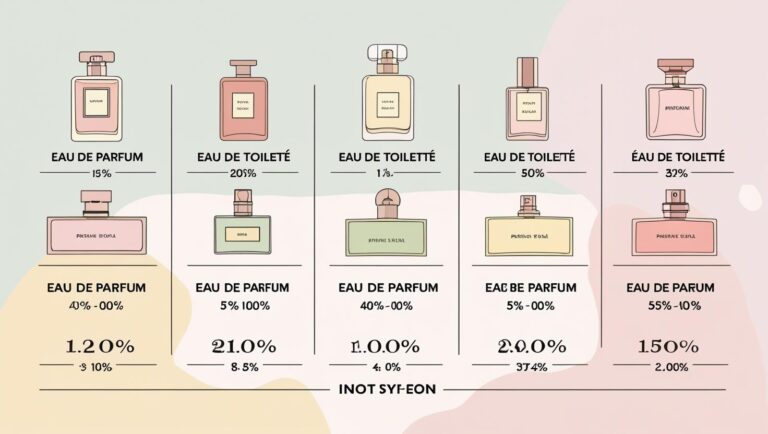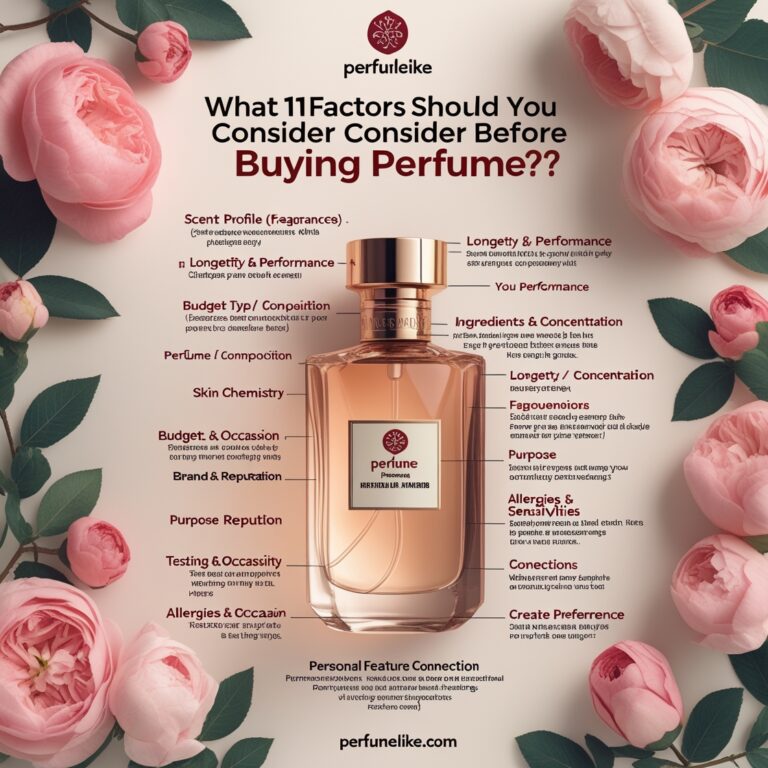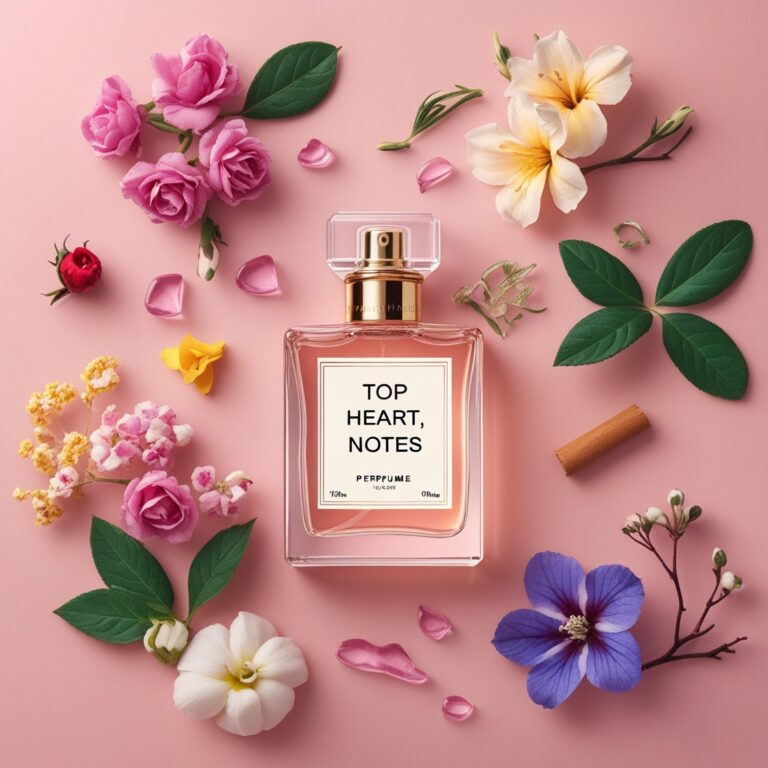What Personal Preferences and Emotions Influence Perfume Selection”

Picking the right perfume matters. Your emotions and likes to influence your choice of scent. This post explains how feelings and personal choices shape your fragrance selection.
Key Takeaways
- Your mood affects your perfume choice. You might pick citrus aromas when happy and warmer ones when sad.
- Smells reveal our identity and heritage. Each culture has preferred scents, showing in our fragrance choices.
- Our sense of smell connects to the brain’s emotion center. That’s why certain smells bring back memories or feelings.
- Choosing a perfume is more than liking its scent. It involves how it makes us feel and the memories it evokes.
- To find the right perfume, consider smells that match your style and emotions. This helps express your unique personality.

The Connection Between Emotions and Fragrance Selection

Your emotions influence the perfumes you prefer. Scent choices are closely linked to how you feel.
The role of mood in scent preferences
Mood influences scent choices. Happy feelings might make someone pick citrus scents, while tough days could lead to choosing warm, woody notes. This link between emotions and smell is strong because the limbic system in the brain processes both.
People often choose perfumes based on their emotional state without knowing it. They might select floral notes to boost their mood or clean scents for calmness. These selections express feelings through fragrance, creating a personal brand connected to one’s mood.
How emotions influence fragrance choices
Your emotions influence the scents you prefer. If you’re sad, a perfume with citrus aromas might uplift your mood. The sense of smell connects directly to the emotional brain in the brain, the center for feelings and recollections .
For instance, smelling warm notes like vanilla can trigger memories of baking cookies with your grandma, evoking feelings of love and safety. Choosing a perfume goes beyond liking its scent; it’s about how it makes us feel and connects us to cherished memories or places.
Personal Preferences in Perfume Selection
The scents we prefer reflect our cultural background and personal identity. Our choices in perfume, cologne, or air fresheners reveal much about our personality.
Cultural influences on scent preferences
Culture influences what scents people prefer. In some areas, warm scents like vanilla and cinnamon are popular. Elsewhere, fresh citrus or floral notes are favorites. This is because cultural background shapes our perception of smells from a young age.
Childhood memories also affect these preferences.
Different cultures favor certain signature scents that carry special meanings for them. For instance, jasmine is common in Asian perfumes, while lavender or rose are more typical in Western fragrances.
These choices reflect the cultural significance of the scents—like purity, comfort, or luxury.
The impact of personality on fragrance choices
Your personality influences the scents you prefer. Outgoing people often choose bold, spicy notes, while calm individuals may select clean or floral notes. This connection shows how our personal traits lead us to pick perfumes that reflect our identity.
For those who love adventure, citrus aromas are a good match. People looking for peace might prefer woody notes.
Research confirms that certain smells can change our mood and confidence level. So choosing a scent is more than finding a pleasant smell; it’s about expressing and enhancing your inner self.
The Science Behind Fragrance and Emotions
Our nose is directly connected to the limbic system in our brain, which is why smells can quickly trigger memories and emotions.
The role of the smell-related system
Your sense of smell plays a big part in choosing perfumes. It sends signals from your nose to the emotional brain in your brain, which controls feelings and recollections. So, smelling a fragrance can trigger memories or feelings.
citrus essences might make you happy by reminding you of summer.
Perfumes use this strong link between smells and feelings. Each scent affects smell-related receptors differently. Floral notes can bring back garden party memories, while woody notes may make you think of forest adventures.
This explains why certain fragrances feel right depending on our personal identity and how we want to feel at that moment.
How scents trigger memories and emotions
Scents directly affect the brain’s emotional brain, which handles emotions and memories. Smells link to past experiences or feelings. Floral notes might remind someone of a spring garden.
Citrus scents often make people feel more awake, like recalling a sunny day spent drinking lemonade.
Choosing perfumes is deeply tied to smell and emotion. People usually select fragrances that fit their mood or bring back happy memories. Warm scents can comfort someone with thoughts of cozy winter nights by the fire.
Clean scents typically make someone feel fresh and prepared for the day.
Tips for Choosing the suitable aroma
Finding the suitable aroma means thinking about what smells feel like you. Check out scents that match your mood or remind you of happy times.
Identify scents that resonate with your personality
To pick the suitable aroma , know your style first. If you enjoy the outdoors, choose earthy or woody notes like oakmoss and cedar. These match a bold spirit. For those who like feeling fresh and full of energy, citrus or aquatic scents such as lemon and sea breeze are good choices.
They fit a lively personality.
Consider what makes you feel happy or calm for scent selection. Lavender and other floral notes are perfect for relaxation. On the other hand, spicy smells like cinnamon work well for energetic people.
Your fragrance choice shares your story silently. It also lifts confidence by matching your inner self.
Consider fragrances that align with your emotions
pick a scent that reflects your mood can enhance how you feel. Citrus scents can uplift you further if you’re already happy. Lavender smells reduce stress when anxious. The nose links directly to the brain’s part that handles emotions, allowing specific aromas to quickly trigger deep memories and feelings.
For instance, warm fragrances like vanilla or cinnamon might bring back cozy holiday memories at home. This strong smell-memory connection exists because the smell-related system connects directly to our brains’ emotional centers.
By selecting perfumes based on desired feelings, we tap into this connection to improve our emotional well-being daily.
Conclusion
People pick perfumes that they like and that reflect their mood. Certain smells, such as those from nature, can relax us. Each person’s scent tells something about their identity. When pick a scent, consider the scents you enjoy and the feelings you wish to evoke.
Selecting a fragrance is both personal and revealing of your individuality to others.
FAQs
1. How does our sense of smell influence perfume selection?
Our olfactory system, specifically the olfactory bulb and emotional brain, play a key role in scenting and perceiving scents. They connect to parts of the brain that process emotions and memory, influencing how we perceive different notes like floral or citrus in perfumes.
2. What is the psychology behind personal choices for certain scents?
personal choices for scents are often linked to emotional responses triggered by our minds’ recollections. This is known as the Proustian effect – an involuntary memory response to specific smells which can greatly sway our choice towards a particular signature scent.
3. Can my emotional state affect my preference for a perfume?
Absolutely! Your psychological state can alter your perception of scents. For instance, warm or spicy notes might be comforting during times of anxiety while clean or woody notes may promote sleep quality and overall emotional well-being.
4. How do cultural influences shape perfume selection?
Cultural perceptions have a significant impact on consumer preferences in the perfume industry; certain scents become associated with personal identity or even national brand identities due to historical use or marketing strategy such as Chanel No 5’s allure.
5. Does choosing a perfume have anything to do with personal branding?
Yes! A chosen fragrance becomes part of one’s personal brand, creating an olfactory impression that complements other aspects of their appearance and behavior – it’s almost like wearing your personality!
6. Can perfumes enhance cognitive function?
Some research suggests that essential oils used in perfumes could potentially improve cognitive functions by stimulating sensory pathways within our brains, however more studies need to be conducted before making any definitive claims.




